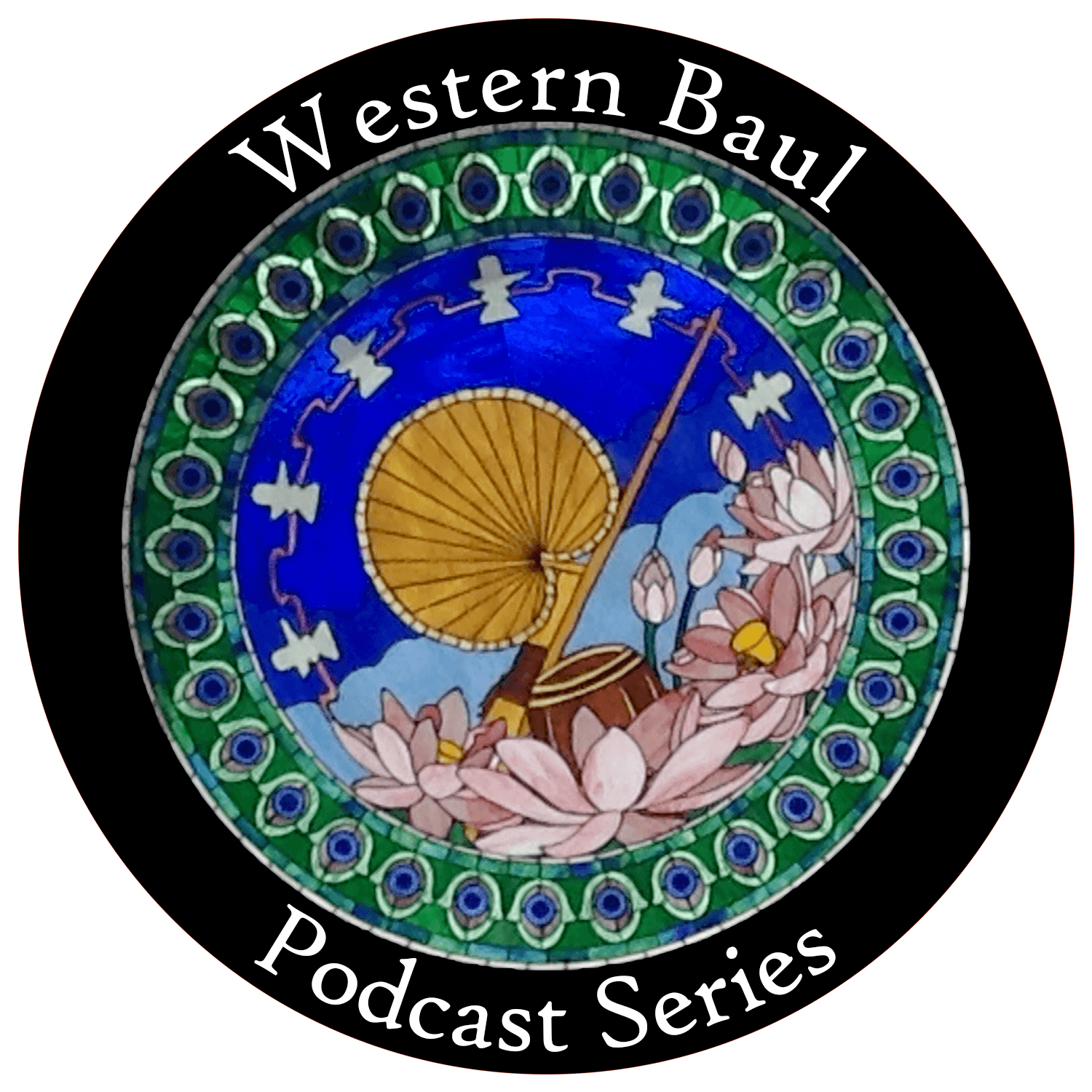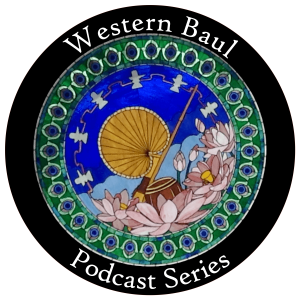
The Western Baul Podcast Series features talks by practitioners of the Western Baul path. Topics are intended to offer something of educational, inspirational, and practical value to anyone drawn to the spiritual path. For Western Bauls, practice is not a matter of philosophy but is expressed in everyday affairs, service to others, and music and song. There is the recognition that all spiritual traditions have examples of those who have realized that there is no separate self to substantiate—though one will always exist in form—and that “There is only God” or oneness with creation. Western Bauls, as named by Lee Lozowick (1943-2010), an American spiritual Master who taught in the U.S., Europe, and India and who was known for his radical dharma, humor, and integrity, are kin to the Bauls of Bengal, India, with whom he shared an essential resonance and friendship. Lee’s spiritual lineage includes Yogi Ramsuratkumar and Swami Papa Ramdas. Contact us: westernbaul.org/contact
Episodes

Thursday Feb 29, 2024
Gurdjieff's Aphorisms: Essence of a Teaching (Carl Grimsman)
Thursday Feb 29, 2024
Thursday Feb 29, 2024
The aphorisms of G. I. Gurdjieff are an accessible concentration of many of his ideas and basic teaching. Nine of the 38 aphorisms are considered in this presentation on the life of Gurdjieff, who appeared in Moscow in 1912 after a 20 year search for knowledge. His quest produced a system that became known as The Work. Gurdjieff used the tumult of life that presented itself to teach, including world wars. All outer work can be used for inner work. Some students who helped Gurdjieff establish, manifest, and disseminate his teaching are discussed: the Ouspenskys, de Hartmans, de Salzmanns, and Orage. Work ideas, music, and movements were engaged by those who had a need to go beyond the ordinary state of “man.” This required self-observation of the human machine with thinking, feeling and moving centers and intentional suffering, choosing how one wished to be, and trying with directed super-efforts. Gurdjieff established a center for his studies at the Prieure near Paris in the 1920s and the aphorisms were posted in the study hall there which included: “The worse the conditions of life, the more productive the work, always provided you remember the Work.” “Like what it does not like.” “Remember you have come here having already understood the necessity of struggling with yourself—only with yourself. Therefore thank everyone who gives you the opportunity.” There is discussion of Gurdjieff’s trips to America, his writing of Beelzebub’s Tales, and his student Louise March who established a center at a New York farm with children’s groups and where the Work has continued. Carl Grimsman was born into the Gurdjieff Work environment during the first years of the New York Foundation, attending the children’s group there and later working with Mrs. March at East Hill Farm. The first two books in his “The Soul’s Traverse” series are Sun Bridge and The Kindling.

No comments yet. Be the first to say something!